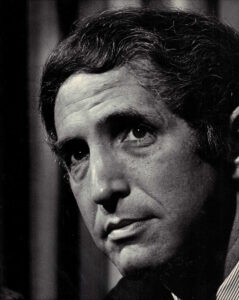[Adapted from Secrets: A Memoir of Vietnam and the Pentagon Papers, by Daniel Ellsberg]
Thoreau said, “Cast your whole vote, not a strip of paper merely—your whole influence.” In August 1969, I attended the War Resisters League conference (at Haverford, a Quaker college near Philadelphia), in hopes of finding out what those words might mean. I wanted to meet people who were living daily the Gandhian principles that I had been reading about. I was ready to be challenged and changed by them.
At the conference I was moved by the speakers and program, but above all, it was war resister and fellow Harvard graduate Randy Kehler whose words gripped me. He talked about nonviolence as a way of life, about hope, about two worlds both existing just now: a waning world dominated by fear, and an emerging world becoming more and more like a family. Listening to him was like looking into clear water.
Then he shared about his friends who were in jail for resisting the draft, and said, “I’ll be invited to join them very soon. One reason I can look forward to jail, without any remorse or fear, is that I know that everyone here and lots of people around the world like you will carry on.”
I had not been braced for what Randy said. When he mentioned his friends who were in prison and remarked that he would soon be joining them, it took me several moments to grasp what he was referring to. Then it was as though an ax had split my head, and my heart broke open. But what had really happened was that my life had split in two.
What I heard from Randy put the question into my mind, “What can I do, what should I be doing, to help end the war, now that I am ready to go to prison for it?” No transition period occurred, during which I asked myself if I was willing to go to prison to help end the war. That didn’t come up as a question; it would have answered itself. I knew myself from Vietnam. I had risked my life, or worse, my body, my legs, a thousand times driving the roads there, or walking in combat. If I could do that when I believed in the war, and even after I didn’t, it followed self-evidently that I was capable of going to prison to help end it.


